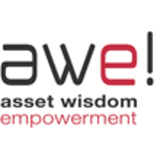This informal CPD article Reflective Practice in CPD activity – what does it really mean? was provided by Asset Wisdom, an online learning platform to train the next generation of Asset Managers.
What is Reflective Practice?
One important element of any learning journey is having the time to reflect on what has been learned. We have all had bad experiences when things haven’t gone quite to plan; the key is to say to yourself how could I have done this differently? If I had done it this way, what would be the result? This, in theory, is reflective practice.
Reflection has for a long time been a feature of learning in many sectors, a good example is Health Professionals. The process in the past has been driven by personal belief, demand of the learning provider or the organisation but it is now moving into the mainstream of educational activity.
Although the process of reflection can and should be undertaken by all learners, each will have a different approach. It is a personal thing and how it is undertaken depends on individual circumstances. The main thing is that we take the time to do it and, that said it is important that you set aside time for reflective practice. It is not always easy but by doing so there will be added value to the learning experience, bring benefits to you and your organisation and thereby improve motivation and productivity.
Historically, some form of workbook was included in many corporate/professional training regimes, but this was often to demonstrate that the learner had “ticked a box” and learnt the process. The essential element of any learning is how the learning is applied on a day-to-day basis to improve things. The way forward is to rethink how workbooks or reflective logs are developed so it incorporates this element; we need to question what has been learned, how can this help job performance, and improve behaviours. The answer obviously depends on what is learned and the subject of the learning experience; we need to include the “why” and “how” once the “what” is learned.
Going through a learning experience and continuing to do the same things is a waste of time, energy, and resources. But remember: “If you always do what you have always done, you will always get what you have always had”
Reflective learning journey
Reflection should be a key part of any CPD activity; here are a couple of statements to get you started on your reflective learning journey:
- Look at what you’ve learnt – what do you think went well and why?
- What didn’t go too well- why was this and how would you change it?
- What can be transferred into your role – this could be a different way of doing things?
- What can you do next – what further knowledge/skills have you identified to help you plan for your further development
- Identify any areas on which you need advice; who will you approach?
For some learners this will be a new and scary experience. To be told that attending the course is “mandatory” can still be seen as a tick-box exercise but being upfront and ensuring the learner needs to show evidence of how what they have learned will change behaviours, and how they will apply the learning in the workplace is a different dimension to the learning session.













